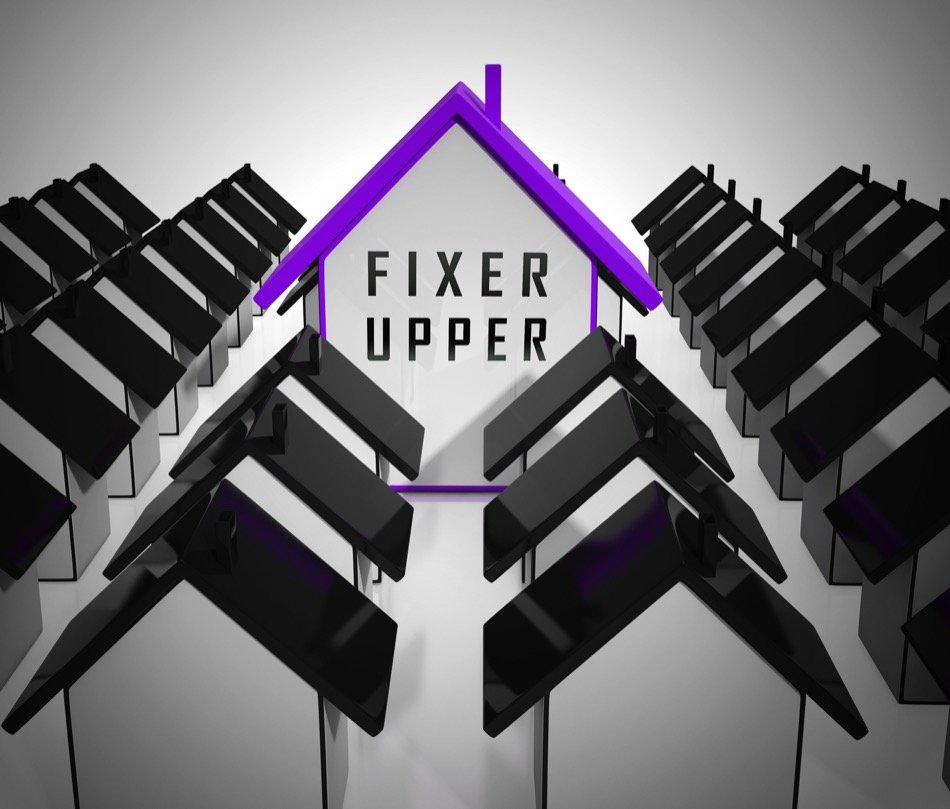Do Fixer-Upper Homes Qualify for VA Loans?
Posted by Lauren Schneider on Tuesday, December 10th, 2019 at 11:03am.
 There are a lot of misconceptions when it comes to the VA loan, and these myths can unfortunately keep people from even applying for it. These government-backed loans give lenders more freedom, meaning their terms are different from that of a conventional lender. However, these loans do specify homes must be in liveable conditions in order to purchase. So whether it's a townhome, condo, or single-family home, certain requirements need to be met. Florissant home buyers considering the conditions of the property they can purchase with a VA loan should keep the following in mind.
There are a lot of misconceptions when it comes to the VA loan, and these myths can unfortunately keep people from even applying for it. These government-backed loans give lenders more freedom, meaning their terms are different from that of a conventional lender. However, these loans do specify homes must be in liveable conditions in order to purchase. So whether it's a townhome, condo, or single-family home, certain requirements need to be met. Florissant home buyers considering the conditions of the property they can purchase with a VA loan should keep the following in mind.
For informational purposes only. Always consult with a licensed mortgage or home loan professional before proceeding with any real estate transaction.
Basic Amenities
VA properties do need to have certain amenities to be eligible.
- Space: Homes need to have enough space to live. From sleeping quarters to dining areas, the property should follow the layout of any standard home.
- Systems: The furnace, water, and electrical systems should all be working. An inspection must reveal systems to be safe and functional for the foreseeable future.
- Structure: The structure of the home should be free from major defects. The roof, walls, and foundation should be stable enough to last for years after the purchase.
Repairs and Upgrades
If the home doesn't meet the above criteria, the buyer may be allowed to repair or upgrade the property. This can become tricky though because not every property can handle a modern electrical system. If there's any insect damage, water damage, or foundation instability, the inspector may report this to the lender, and the lender may require it to be fixed. Essentially, the lender wants to protect their investment from decay, and the government wants to put veterans in a safe facility.
The Good News
Just because a home needs to be move-in ready, doesn't mean veterans can't find a property in need of some repairs. Homeowners can do a lot just by changing out the flooring of the home or updating the kitchen or bathroom cabinets and counter space. VA loans do not allow applicants to borrow money for repairs unless they're upgrading to an energy-efficient mortgage (EEM). This option allows qualified buyers to upgrade everything from the furnace to the insulation to save money on their utility bills.
All repairs will need to be approved by the lender, but EEM mortgages give veterans a low-interest way to improve the home while reducing utility bills. There are three tiers for an EEM. The first tier is up to $3,000, the second tier is up to $6,000, and the third is anything over $6,000. The first tier typically requires an itemization of costs and information on products needed. Applicants may also need a copy of the contractor bid.
The second tier will require the same of applicants, along with an energy audit of the utility costs of the home. The third tier will carry the same requirements as both the first and second, as well as additional approval from the VA. Those who want to pursue the third option should decide as early as possible because their lender may need to make special arrangements. No matter what, lenders will need both an appraisal of the property and an inspection before being approved.
Additional Considerations
VA homes are required to have ample access both via foot and vehicle. Applicants may be denied if they need to cross a different property in order to make it to their home. So if a veteran wants to buy a duplex requiring them to pass through the downstairs living unit, they may be turned down for the loan.
If a person wants to buy a manufactured or prefabricated home, it's worth noting the home must have land attached to qualify for the loan, and the home needs to be at least 24-feet in width. Lenders may be more likely to turn down an applicant for a manufactured home, as these properties come with more risks attached.
There are ways for veterans to use their home as a commercial enterprise. However, the home must be primarily residential in order to qualify. A homeowner is allowed to set aside up to 25% of their space to be used for non-residential purposes, so long as this does not interfere with the home as a residence.
VA loans provide a variety of ways for veterans to purchase a property, but there are a few considerations to keep in mind before applying. Because each lender will have their own terms for VA loans, applicants are encouraged to get several quotes before deciding on one that's right for them.
For informational purposes only. Always consult with a licensed mortgage or home loan professional before proceeding with any real estate transaction.
